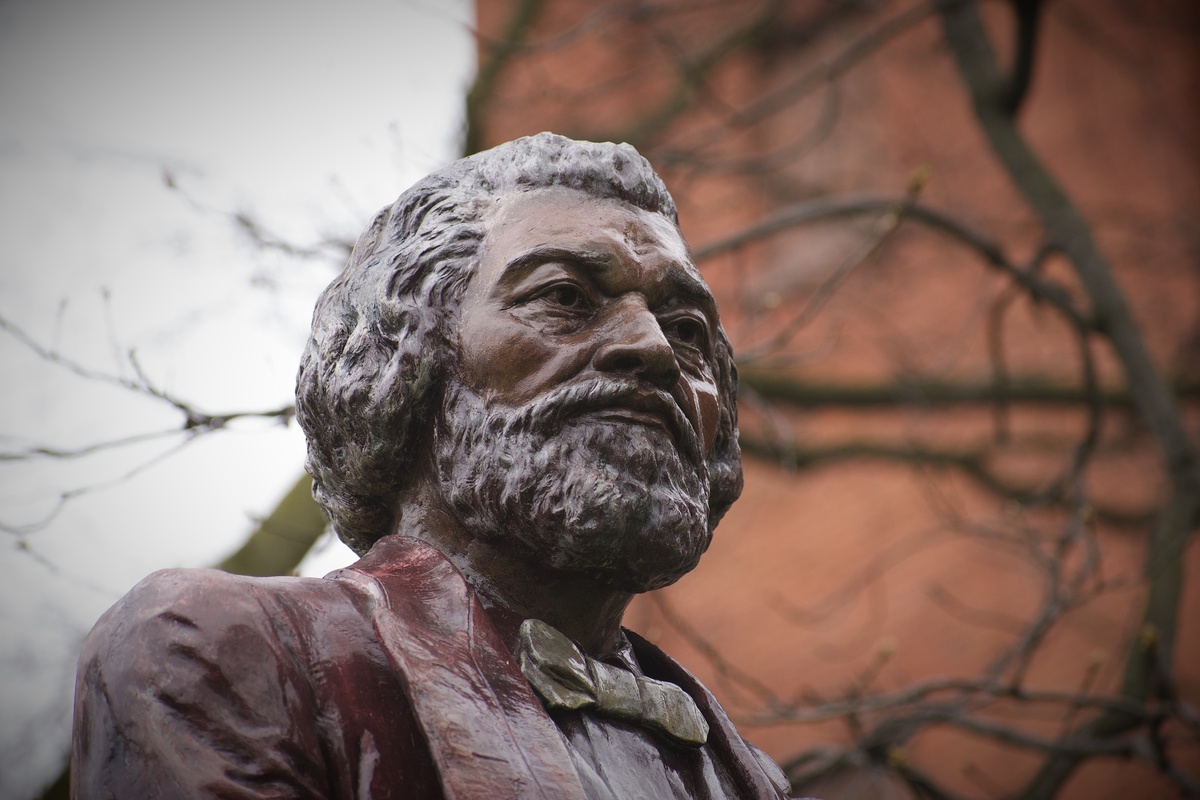
TLDR: Frederick Douglass’ powerful speech, “What to the Slave is the 4th of July?” was brutally honest in its critique of American government’s continued tolerance of slavery in the U.S. While he gave praise to the Founding Fathers for their bravery and wisdom in creating the nation, he made it clear that slaves deserved that same independence.
So What? The timeless themes in Douglass’ speech make it just as relevant today. Here’s what great communicators can learn about appealing to these timeless themes of freedom and equality.
In 1852, slavery was still legal in the U.S., even though a growing number of Americans opposed it. Abolitionist Frederick Douglass, himself an escaped slave, gave a speech that shed light on how Black people looked at celebrating the 4th of July. While the speech was given more than 150 years ago before a small audience of mostly female abolitionists, it still holds timeless truths today about freedom and equality.
The speech, called “What to the Slave is the 4th of July?”, laid bare the disparity between the freedom experienced by white people when America became free and independent, and the continued slavery and inequality that Black people experienced at the same time. The way Douglass communicated these hard truths can teach us much about how we can deliver difficult messages.

Brutal Honesty is Sometimes Needed
Douglass spent much of the speech explaining the hypocrisy inherent in slavery and how celebrations of freedom and independence were perceived negatively by Black people, due to their own experiences with inequality and slavery.
Douglass didn’t mince words in these descriptions. He described the “mournful wail of millions” of slaves, whose chains are “more grievous” in light of the celebrations of independence. He said the Constitution was “disregarded and trampled upon,” and that “America reigns without a rival” in “revolting barbarity and shameless hypocrisy.”
The paragraph that gives the speech its title is one of the most brutally honest:
What, to the American slave, is your 4th of July? I answer: a day that reveals to him, more than all other days in the year, the gross injustice and cruelly to which he is the constant victim. To him, your celebration is a sham; your boasted liberty, an unholy license; your national greatness, swelling vanity; your sounds of rejoicing are empty and heartless; your denunciations of tyrants, brass fronted impudence; your shouts of liberty and equality, hollow mockery; your prayers and hymns, your sermons and thanksgivings, with all your religious parade, and solemnity, are, to him, mere bombast, fraud, deception, impiety, and hypocrisy — a thin veil to cover up crimes which would disgrace a nation of savages.
Douglass says he knows his honesty is brutal, but that other less pointed arguments have been made for many years without change. He’s laying everything on the table to get people to see the urgency of ending slavery and affording slaves the same rights and freedoms everyone else enjoys under the Constitution.
We can’t confuse Douglass’ brutal honesty with hyperbole or exaggeration. Douglass was not exaggerating the dire conditions of slavery to make a point, but only plainly and boldly telling the truth about the institution of slavery.
Give Credit Where Credit is Due
Douglass didn’t throw out the baby with the bathwater. He praised the Founding Fathers for their courage, even as he pointed out their failings. “I am not wanting in respect for the fathers of this republic. The signers of the Declaration of Independence were brave men. They were great men, too — great enough to give fame to a great age,” he said.
He further called them “statesmen, patriots, and heroes” and said he admired them. Douglass’ ability to see the virtues of the Founding Fathers while also pointing out their flaws helped bolster his arguments rather than detract from them. It can be tempting to burn everything down in protest of injustice, but nuance can be a more effective response, as it engenders less opposition.
Douglass also pointed out that slavery was not mentioned anywhere in the Constitution, citing this as evidence both that constitutional principles could still apply, and that slavery was never the intended way for the country to operate.
Hit on Timeless Themes
Douglass probably didn’t know his speech would be remembered for more than 160 years. In fact, his introduction makes it clear he didn’t know how it would be received, and he was nervous about what he was going to say.
Within the speech, however, he hit on many timeless themes that are still relevant both to the Black experience and to the human experience:
- Justice/Injustice
- Equality/Inequality
- Freedom/Slavery
- Hypocrisy
- Bravery/Courage
- Respect/Honor
- Status Quo/Change
- Man’s Inhumanity to Man (meaning mankind)
- The Obligation to Do What’s Right
Great communicators should memorize this list. When a message hits on these timeless themes, it resonates with hearers, and it’s more likely to stand the test of time.
The U.S. has come a long way with regard to slavery and equality, but there’s still a lot of work to do. The country hasn’t wholly eradicated all the racist attitudes and actions that can lead to discrimination and unequal treatment.
This video of Frederick Douglass’ descendants reading his speech shows that it’s still relevant today, continuing to inspire us and push us forward toward justice and equality for all.
At Media Shower, we give timeless relevance to your corporate communication, developing marketing materials that everyone loves. Try Media Shower for free and find out for yourself.
